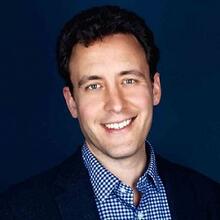“On the Complexity of Forming Mental Models,” Ryan Oprea, UC Santa Barbara

BEHAVIORAL SCIENCES WORKSHOP
We experimentally study how people form models of simple data generating processes (DGPs), describable as finite automata. We show subjects datasets and ask them to form models of the underlying DGP in order to make predictions about its future outputs. Although these tasks are perfectly deterministic (and are built upon the simplest possible DGPs), we find that subjects fail to form accurate models almost 60\% of the time, with a great deal of variation in the rate of failure across DGPs (ranging from 15% to 95%). Analyzing a number of formal complexity notions, we find that this variation is strongly predicted by complexity metrics that describe the information processing required to apply the model to form predictions. We find evidence that subjects are often unable to verbally articulate models they’ve successfully extracted for prediction, suggesting that mental models are often learned implicitly (unconsciously) rather than explicitly. Finally, we show that subjects have a “bias” towards forming simple models when multiple models are available to explain data, and that this bias, too, is skewed towards models that require minimal information processing.
Ryan Oprea is the Maxwell C. and Mary Pellish Chair of Economics at UC Santa Barbara and the Director of the Laboratory for the Integration of Theory and Experiments (LITE). His recent research is focused on understanding how bounded rationality arises from aversion to complexity and preferences for procedural decision making. Other research interests include understanding disequilibrium behavior in markets and strategic behavior in continuous time settings. He is an associate editor at the American Economic Review, the Review of Economics and Statistics, Games and Economic Behavior, is on the editorial board at Experimental Economics and serves on the Executive Committees of the Sage Center for the Study of the Mind and the Foundations Institute.
This workshop is open to the Yale community only. To receive announcements and invitations to attend, please subscribe at https://csap.yale.edu/behavioral-sciences-workshop.
Cosponsored by the Center for the Study of American Politics (CSAP) and the School of Management’s International Center for Finance and the Lynne & Andrew Redleaf Foundation.